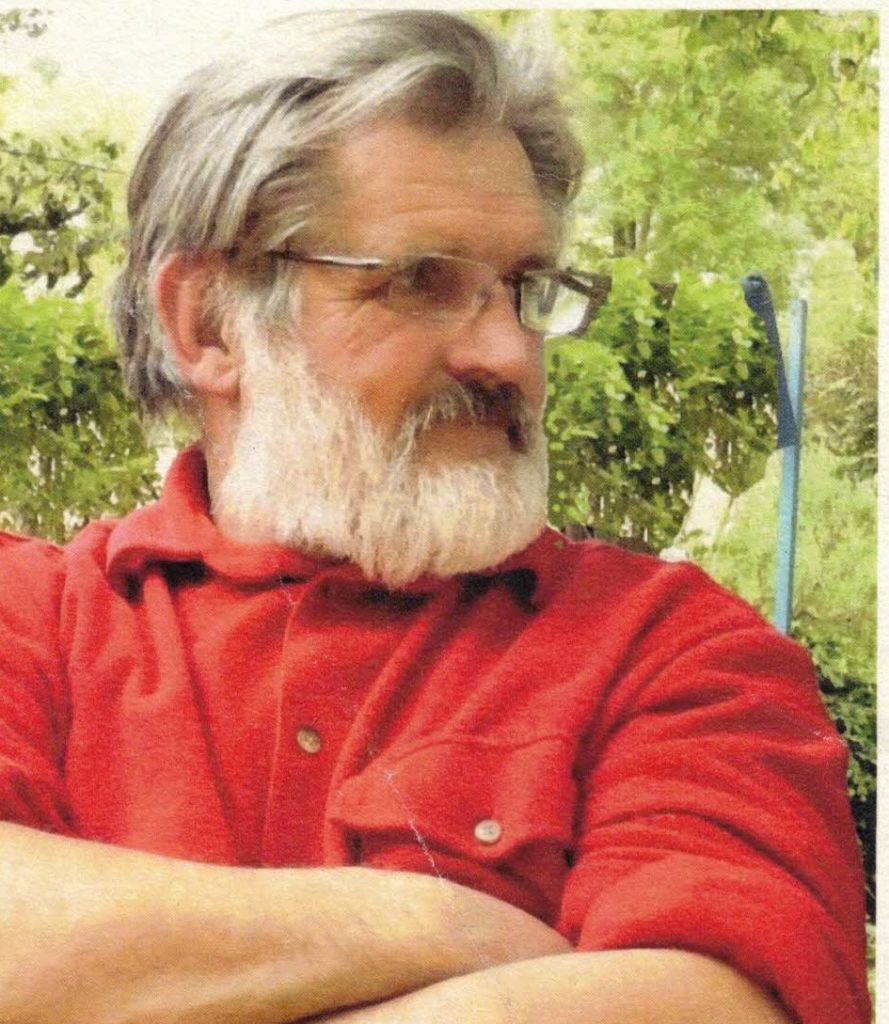By Rudolf di Stefano, January 2025

We wish to dedicate this 2025 New Year Wishes Ceremony to Werner Knoll. Many people among us knew him and had the honour of being his friend, but of course many others did not have the good fortune to meet him on the tatami. Yet, without fully realising it, each of us is still today marked by what he brought to our practice, by who he was as a person.
It has already been twelve years since he passed away, so it is necessary in a few words to remind some, and tell others, who Werner was and attempt to say how he guided junomichi, how junomichi was transformed through him, like a luminous source diffracted by a few prisms and redirected towards a new direction.
First of all, we must remember that from the age of twenty, and right until the end, he was a faithful practitioner with Igor Correa. His encounter with Correa, as was the case for many others of course, was decisive, a shock that left its mark on him for life. A long time ago, whilst looking through Igor Correa’s archives, I came across one of the letters Werner had sent him. In it, when he was twenty-four, he wrote that Correa was for him a guide who, with his sword, cleared a dense forest, thereby opening up a path. Werner followed Igor Correa everywhere—on courses, on his travels—and invited him every year to eastern France, where Werner taught, that is, in Alsace, precisely in Thann.
When Igor Correa died, he and Christian Demarre were the ones who took over the junomichi courses, and this also lasted twelve years. Through his teaching qualities, his practice and his strong personality, he was undeniably a significant facilitator. But in what way? What was his specificity? How does his individual approach to practice still influence what we do today?
First, we must note one particularly striking dimension of his character: his sincerity. A sincerity that emanated from his entire being, his whole body and mind, and that revealed itself in the way he practised and passed on his knowledge. Throughout his life, in every teaching situation he encountered, he applied what Igor Correa had shown him: namely, the principle that we must always strive to “do what we say and say what we do.”
This sincerity, which he maintained throughout his life, was powerfully communicative and gave everyone the feeling that they could rise to that level of commitment. When you were by his side, it was difficult, even impossible, not to be affected by that moral uprightness; one felt compelled to make a decision.
This sincerity led to a clear understanding of what the word friendship means in our practice. In junomichi, being friends is a shared commitment to what we have decided to keep alive, without any concession, where each word carries weight, each remark and each act implies a radical commitment.
When Werner spoke and when he practised, it was always succinct, and in that brevity lay the truth of his character, the power to which sincere friendship exposes us.
He also had a trust in the idea that collective work is a source of vitality and constant questioning of what junomichi should be. Despite his major charisma and obvious worth and legitimacy, this trust was reflected in a deep lack of interest in power, which led him to ensure that the technical commission operated in a collegiate way. In other words, that the direction of junomichi should not be in the hands of a single individual, a technical director, but rather a group of practitioners who were more or less experienced.
His conviction in practitioners’ capacity to guide themselves took the shape of a great hope in the future, a hope which, when he spoke of it, was called: youth. Youth was what he always wanted to listen to, and it was through youth that he was willing to question himself and be shaken up. He was sometimes filled with surprise, an astonishment that allowed him to break free from habits that can sometimes stifle practice. He detested the kind of self-satisfied old age that believes the mere privilege of age enables one to decide what is right.
Perhaps it was this attentiveness that gave him his ability to anticipate, and this unique visionary quality that defined him so strongly. His clear-sightedness enabled him to be realistic about the present and its immediate possibilities, whilst also perceiving within it what is taking shape and can blossom in the future of junomichi.
So we can dare to say that he foresaw what junomichi would become: that, for example, we would manage to create an autonomous space of our own, the junomichi Dojo, built with our own hands, as he had so often shown us through his own projects; he foresaw that we would be able to continue organising ourselves independently, despite his deep awareness of how difficult that is in today’s world; he also foresaw—on the tatami, which we must dare to say—that we would remain capable of joy and lightness, that we would not take ourselves too seriously, because with Werner we worked hard, but we also laughed a lot.
He could see far ahead—he saw as far as us, no doubt, those of us gathered here today for this 2025 New Year Wishes Ceremony. We will give life and expression, through our collective work and the quality of our actions, to the fact that junomichi is still thriving and that in our bodies and minds, in our attitude, there remain present traces of what he so deeply engraved in us.